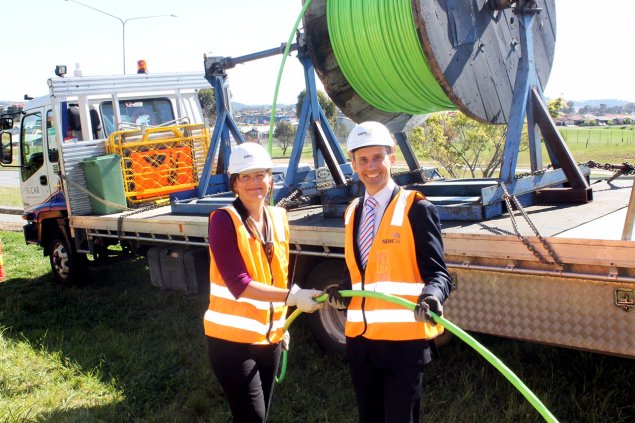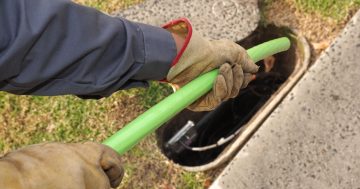
I was 11 years old when I bought my first computer. It was 1984, and the machine was a Mattel Aquarius. Rubber keys, cassette tape drive, less than 4 kilobytes of memory, and black and white television as a screen.
Back then, the only way to transfer data was on a cassette tape.
There’s been a trail of inspiration and innovation to get us from magnetic tape to cloud storage. We didn’t get from the Aquarius to the iPad Air by settling for second best. In technology, standing still is going backwards.
But the Liberal government wants take a step backwards in time. In the past few years, they’ve bought millions of metres of copper.
Since the change of government, and Malcolm Turnbull’s decision to abandon a fibre-to-the-premises strategy in favour of a copper-based broadband strategy, Australia has fallen from 30th to 60th in global internet speed rankings.
The NBN is critical 21st century infrastructure. More and more people rely on the smooth flow of data for their work, study and daily activities. Internet speed and access are now key considerations for almost every household and business.
These days, a single fibre optical cable can carry over 3 million phone calls or 90,000 TV channels. The capacity of optic fibre is being improved every month. Once we start to compromise on the key parts of our telecommunications infrastructure, we throttle the momentum of innovation and progress.
I like to think of the internet as the information superhighway. Copper is the equivalent of a road made of dirt, fibre is a highway built with concrete.
Copper was a great technology – for the 19th century. Yet the Liberals believe we should be buying it to build a 21st century network.
Labor wants to invest in fibre – the future’s technology – because it’s stronger, safer, more flexible, more durable, and almost impossible to overload.
We’re not particularly good at forecasting where technology will take us. Through inspiration or iteration, innovations spring up in unexpected places and forms. But this can only happen if we anticipate change when we plan our technology infrastructures.
Back when I had my Aquarius, the Sydney Morning Herald’s computer columnist predicted that no computer program would ever need more than 16k of memory. Today, I receive emails containing more than 16k of data about once a minute.
Malcolm Turnbull seriously believes Canberrans will only ever need 25 megabits per second of data. Yet 100 megabits per second is already the urban standard in South Korea, and that country is now rolling out 1000 megabits per second services.
Good luck keeping up.
Speedy data transfer means large files can be moved quickly around the world, allowing global collaboration and competition. Smooth, reliable streaming will enable remote health consultations with specialists, masterclasses with global experts, and easy connections to family and friends.
It means that as the number of people using the internet as their primary media channel continues to increase, speed and access won’t dip drastically in peak times.
The Liberals don’t understand how critical superfast broadband is to business and education. They don’t understand how the best connectivity can vastly expand the market-reach and productivity of a small business. They are content with Australia being a 60th-best nation.
Already, ACT tech businesses are voting with their feet by setting up in Gungahlin, where Labor’s fibre-to-the-premises connections are available.
But the Liberals want to connect most of the rest of the northside up to an inferior system. Nationally, Malcolm Turnbull’s broadband is costing twice as much as he promised, and taking twice as long to complete.
The Liberals have scandalously derailed the NBN. They are threatening Australia’s broadband future.
I want you to join me and sign the petition to demand a better solution, sooner.
Andrew Leigh is the Shadow Assistant Treasurer, and his website is www.andrewleigh.com.













